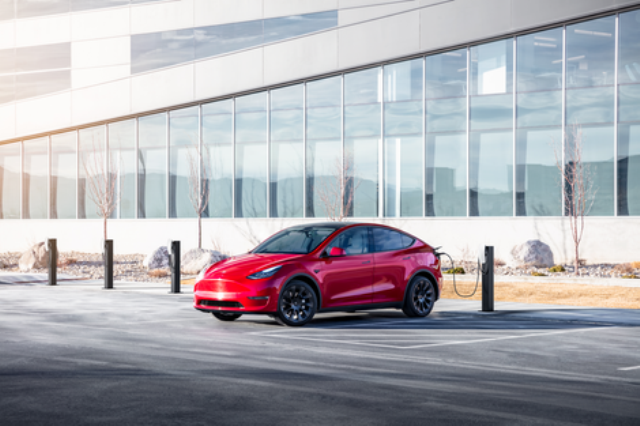China-based BYD has surpassed Tesla as the top EV maker in Q4 though Tesla has delivered 494,989 electric vehicles from October to December, 2023, Reuters news report said.
Tesla will post its financial results for the fourth quarter of 2023 on Wednesday, January 24, 2024.
In the fourth quarter, Tesla produced approximately 495,000 vehicles and delivered over 484,000 vehicles. In 2023, Tesla’s vehicle deliveries grew 38 percent to 1.81 million while production grew 35 percent to 1.85 million.
Warren Buffett-backed BYD delivered 526,409 electric vehicles, mainly dominating the Chinese market. This disparity indicates a shift in consumer preferences towards more affordable models amidst a high-interest-rate economic landscape.
Tesla’s aggressive year-end sales push contributed significantly to its overall annual delivery count of 1.8 million vehicles. Despite this accomplishment, it fell shy of CEO Elon Musk’s ambitious internal target of 2 million for the year.
Though lagging behind BYD in the final quarter, Tesla, according to news statement, maintained its lead for the entire year. BYD closed the year with a total delivery count of 3.02 million vehicles, including approximately 1.4 million plug-in hybrid EVs.
Financial experts like Susannah Streeter, head of money and markets at Hargreaves Lansdown, pointed out that BYD’s aggressive pricing strategies have proven effective. Streeter highlighted that this fierce competition may impact profit margins for both companies, but BYD seems willing to endure these consequences to expand its market share and global recognition.
In response to upcoming reductions in U.S. federal tax credits for certain variants of its Model 3 sedan in 2024, Tesla introduced incentives and increased discounts, such as offering six months of complimentary fast charging for customers who received deliveries by the end of December.
This marketing strategy led Tesla to post an 11 percent growth compared to the preceding quarter.
The company’s record-breaking quarter was a significant rebound from a production pause in the third quarter to upgrade assembly lines, culminating in a total production of 1.85 million units for 2023.
Gary Bradshaw, portfolio manager at Tesla shareholder Hodges Capital, praised Tesla’s delivery numbers, stating that they significantly outperformed those of domestic U.S. car manufacturers.
Meanwhile, Tesla’s competitor Rivian reported its deliveries on Tuesday, falling short of market expectations amid a broader downturn in EV demand.
Rivian Automotive produced 17,541 vehicles at its manufacturing facility in Normal, Illinois during Q4 2023 and delivered 13,972 vehicles. In 2023, Rivian produced 57,232 vehicles and delivered 50,122.
This trend has prompted caution among U.S. automakers like Ford and General Motors regarding their EV production capacity plans.
However, Tesla faces challenges beyond market competition. Regulatory scrutiny over its self-driving technology led to a recent recall of over 2 million vehicles to implement new safety measures in its Autopilot advanced driver-assistance system.
Concerns raised by federal safety regulators have prompted consumer advocacy group Consumer Reports to express dissatisfaction with the software update, citing concerns about its effectiveness in preventing misuse and driver inattention.
Looking ahead, analysts anticipate that Tesla may need to continue its price cuts initiated in January last year to sustain demand, especially following the cessation of tax incentives under the Inflation Reduction Act (IRA), which pulled forward sales into the fourth quarter of 2023. The removal of federal tax credits for specific versions of the Model 3, owing to updated battery material sourcing requirements under the IRA, may necessitate further price adjustments.
Despite these challenges, Seth Goldstein, equity strategist at Morningstar, suggested that Tesla could potentially maintain prices if borrowing costs decrease, attributing most price cuts to the impact of higher U.S. Federal Reserve interest rates.
While Tesla’s delivery figures prominently featured the Model 3 and Model Y, comprising 461,538 deliveries in the quarter, the company did not disclose whether these numbers included its recently launched Cybertruck.

